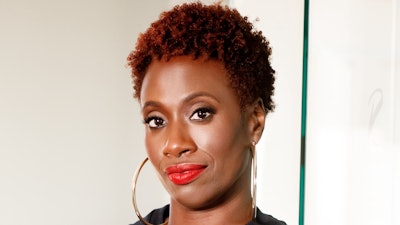Angel Reece, Black woman, role model, and elite college athlete. We got you.
We are two Black women higher education scholars, who love women's basketball and love Black women and care deeply about their well-being. Chayla’s love for basketball began in 1991, at 14 years old as a high school freshman in Angel’s home state, Maryland. Chayla never played organized basketball before then, but she tried out for her high school team and was thrilled to make the junior varsity roster. Being on the team gave Chayla the instant feeling of accomplishment every Black girl feels when they aspire toward a goal and achieve that goal. In talking with LaWanda about her love for basketball, Chayla recalled, “I had to have the No. 32 jersey because that was Magic Johnson’s number.” Magic was Chayla’s all-time favorite basketball player. Chayla got the 32 jersey and was ready for the season to start, even though she did not know yet how she would pay for her basketball shoes or other team-related fees each player had to cover. Chayla was on the team, and decided she would figure the rest out later. In hindsight, Chayla believes her laser focus on Magic was due in some part to men being the prevailing image of basketball’s elite. During the years she played high school basketball, Chayla collected NBA and NCAA men's basketball trading cards. She watched and followed Georgetown Men’s Basketball and the Fab Five of Michigan State, just like the rest of the world during that time. The WNBA did not launch until 1997.
 Dr. Chayla Haynes Davison
Dr. Chayla Haynes Davison
We agree Angel and the LSU Lady Tigers are not only phenomenal on the court, but also off the court, rightfully experiencing the benefits of name, image, and likeness (NIL). And watching them is like seeing ourselves, our Black womanhood, on screen.
Unsurprisingly, March Madness and the 2024 NCAA Women’s Basketball Championship brought us so much Black Girl Joy. We go hard for Angel and the LSU Tigers, but we also marveled at the beauty of Black expansiveness, the broad representation of Black womanhood we witnessed and celebrated, with other Black women across the country. In many ways, watching this year’s tournament fed our souls. JuJu Watkins from USC, Jordan Harrison and JJ Quinerly from West Virginia, Mallory Collier and Saniya Rivers from NC State, Black college women, who dominate on the court. Plus, Elle Duncan, Chiney Ogwumike, and Andray Carter, slaying as Black women do, flossing their basketball IQ in high-end style on ESPN for the culture. And let's not forget, the South Carolina Gamecocks, led by the GOAT, Dawn Staley, along with Kara Lawson from Duke and Niele Ivey from Notre Dame and all the Black women coaching their asses off from the sidelines. Black women doing what they love at higher education institutions with deep histories of racial injustice. Their determination to play through, to press on, to show up was not lost on us. Our research reveals that Black college women, like Angel, and countless unnamed others, encounter violence on and off campus every day and in ways that are socially acceptable (Haynes, Ward & Patton, 2023). Still, Black college women and ball players, like Angel, put their bodies on the line, raising the bar and bringing their institutions’ notoriety.
In what we now know to have been Angel’s last NCAA basketball game, the Lady Tigers fell to Caitlin Carter and the Iowa Hawkeye women’s basketball team. During the postgame press conference, Flau’jae said this about Angel’s leadership,
“People have their opinions, but y'all don’t know Angel Reece. I know Angel Reece. I know the real Angel Reece. The person I see every day is a strong person, a caring, loving person. But the crown she wears is heavy, bro. She is the type of teammate that’s gonna make you believe in yourself. The leap that I took from my freshman to sophomore year, Angel gave me that confidence to go be a dawg, playing next to a dawg every day. [T]o see how the media ridicules her..this my sister right here, and I'm so proud of her. [Y]'all like to call [her] a villain, [but] y’all don't know Angel, bro. I'm just happy that I get to play with her… her presence, her energy is different. She just makes me a better player …and that's what great players do.”




















